Warner College of Natural Resources has welcomed a number of new program directors and tenure track faculty this fall. Additionally, several members of the College’s community are transitioning into new roles within the College. Welcome to all of our new colleagues (and a welcome back to several) and congratulations to everyone as they enter their new roles.
Program Directors:
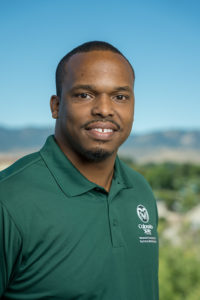
Dr. Rickey Frierson
Director of Diversity and Inclusion
Dr. Rickey Frierson joins Warner College as the college’s first Director of Diversity and Inclusion. Frierson joins the College with a strong background and set of experiences related to diversity and inclusion in higher education. He recently completed a Ph.D. at the University of Houston, where his dissertation research addressed factors underlying degree success and completion of minority males in predominantly white institutions. He has an extensive background as a consultant, trainer, and professional, with experience with faculty recruitment and retention, program assessment, student mentorship, program leadership, strategic planning, and other topics.
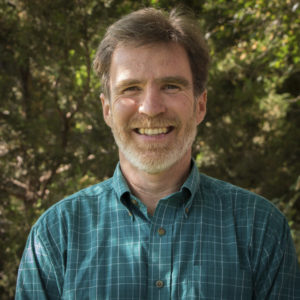
Dr. John Sanderson
Director of the Center for Collaborative Conservation
Dr. John Sanderson is the new director of the Center for Collaborative Conservation. Since 2005, Sanderson has worked for the Nature Conservancy of Colorado, most recently as Director of Science, leading a staff of ecologists who work on a wide range of conservation challenges, including protecting lands in the fast-growing West, creating tools to assess the ecological state of rivers, restoring Front Range forests, and advancing policy to reduce greenhouse gases. After earning his B.S. in Engineering from Purdue University and an M.S. in Botany from the University of Vermont, Sanderson got his start in Colorado in 1994 doing field inventory and conservation planning for the Colorado Natural Heritage Program. He later earned his Ph.D. in the Graduate Degree Program in Ecology researching intermountain playa wetlands in Colorado’s San Luis Valley. Sanderson is passionate about figuring out how we work together to maintain Colorado’s natural treasures as our population explodes and our world continues to warm.
University Fellows & Tenure-track Faculty
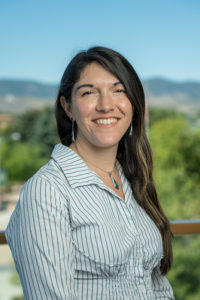
Dr. Sara Petrita Bombaci
Assistant Professor, Department of Fish, Wildlife, and Conservation Biology
Dr. Sara Petrita Bombaci is an Assistant Professor of Diversity and Inclusion in Natural Resources in the Warner College of Natural Resources. As a conservation biologist, Bombaci explores innovative strategies for restoring biodiversity, investigates how ecological communities and interactions are transformed by global change, and integrates technological advances in machine learning and bioacoustics to enhance long-term biodiversity monitoring. Bombaci has also spent over a decade conducting research, teaching, and service to advance diversity, equity, and inclusion in STEM fields. Bombaci is an avid science communicator who uses storytelling, photography, and other visual media to share her discoveries with diverse audiences.
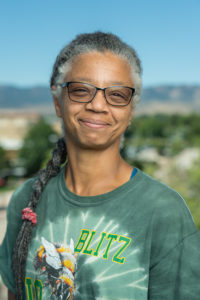
Dr. Gillian Bowser
Associate Professor, Department of Ecosystem Science and Sustainability
Dr. Gillian Bowser is an associate professor in the Department of Ecosystem Science and Sustainability. She is an interdisciplinary researcher whose career has spanned ecology, policy, and diversity, gender and diversity and inclusion issues. Bowser transitions to this tenure-track faculty role from her previous positions as a research scientist in CSU’s Natural Resource Ecology Laboratory, and affiliate faculty in the departments of Ecosystem Science and Sustainability and Ethnic Studies. Recent projects include collaborating with partners across disciplines to study the ecological indicators of climate change in Brazil and Peru, incorporating the linkages between changing ecological conditions, local community livelihoods, and climate. In addition to scientific pursuits and advancing minority participation in ecology, Bowser emphasizes the interdisciplinary nexus between art and science.
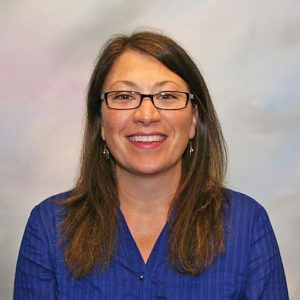
Dr. Christina T. Cavaliere
Assistant Professor, Department of Human Dimensions of Natural Resources
Dr. Christina T. Cavaliere, is an assistant professor in the Department of Human Dimensions of Natural Resources. She is as an environmental social scientist and international sustainable development specialist with a focus on linking tourism and conservation. Cavaliere’s areas of expertise involve the human dimensions of socio-ecological systems including tourism impacts. Cavaliere has academic and applied experience in 38 countries on 6 continents working with universities, communities, businesses, non-governmental organizations and multilateral institutions.
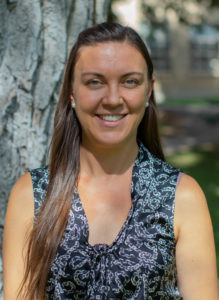
Dr. Daniela Cusack
Assistant Professor, Department of Ecosystem Science and Sustainability
Dr. Daniela Cusack is an assistant professor in the department of Ecosystem Science and Sustainability. Her research program examines effects of global change and human modification on ecosystem ecology across spatial scales, using methods from biogeochemistry and biogeography. Cusack focuses on terrestrial ecosystem responses to drying, warming, nitrogen deposition, land use change, and invasive plant species. She is particularly interested in belowground responses to global change across land uses and cover types.
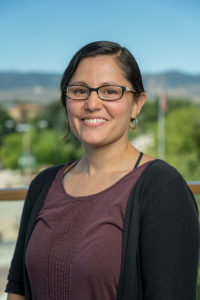
Dr. Dominique David-Chavez
Provost’s Postdoctoral Fellow, Department of Forest and Rangeland Stewardship
Dr. Dominique David-Chavez is a postdoctoral research fellow in the Department of Forest and Rangeland Stewardship and the Native Nations Institute at the University of Arizona’s Udall Center for Studies in Public Policy for a National Science Foundation study focused on Indigenous data and research governance in environmental policy and decision-making. David-Chavez’s work has included studying climate change across the Caribbean islands, where she identified a problematic lack of engagement with local communities leading to gaps in knowledge research could benefit from.
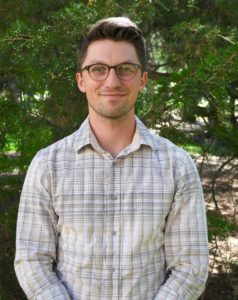
Dr. Kyle Horton
Assistant Professor, Department of Fish, Wildlife, and Conservation Biology
Dr. Kyle Horton is an assistant professor in the department of Fish, Wildlife, and Conservation Biology. Horton’s research leverages remote-sensing tools, like radar, to better understand how migrants fill the nighttime airspace, determine where and when migrants are impacted by human disturbances, like light pollution, and how radar can be used to forecast, mitigate, and monitor these impacts in a changing aerial landscape. He received his B.S. in Biology from Canisius College in 2011, M.S. in Wildlife Ecology from the University of Delaware in 2013, and Ph.D. in Ecology and Evolutionary Biology from the University of Oklahoma in 2017. He was a Rose Postdoctoral Research Fellow at the Cornell Lab of Ornithology before joining Colorado State University.
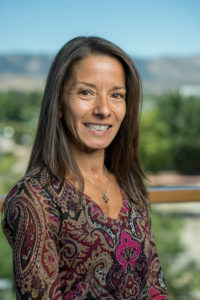
Dr. Anna Lavoie
Assistant Professor, Department of Human Dimensions of Natural Resources
Dr. Anna Lavoie is an assistant professor in the department of Human Dimensions of Natural Resources. She is an interdisciplinary trained researcher specialized in environmental governance and livelihoods. She previously served at NOAA Fisheries, Alaska Fisheries Science Center where her work focused on women in Alaska fisheries, and development of social vulnerability indicators of Alaska fishing communities. She has also conducted research on the gendered dynamics and governance of small-scale fisheries in Brazil.
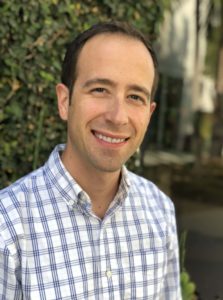
Dr. Nathan Mueller
Assistant Professor, Departments of Ecosystem Science and Sustainability and Soil and Crop Sciences
Dr. Nathan Mueller is an assistant professor in the Departments of Ecosystem Science and Sustainability and Soil and Crop Sciences. Mueller’s research examines the interactions between agroecosystems and global environmental change using geospatial data across regional to global scales. Much of his ongoing research examines climate change vulnerabilities and adaptation possibilities, including how climate change will alter snowmelt water resources for irrigation and how changes in cropping patterns could minimize the impacts of climate change. Mueller received his Ph.D. from the University of Minnesota in 2013 and his B.A. from St. Olaf College in 2007 and comes to CSU after serving on the faculty of the University of California, Irvine.